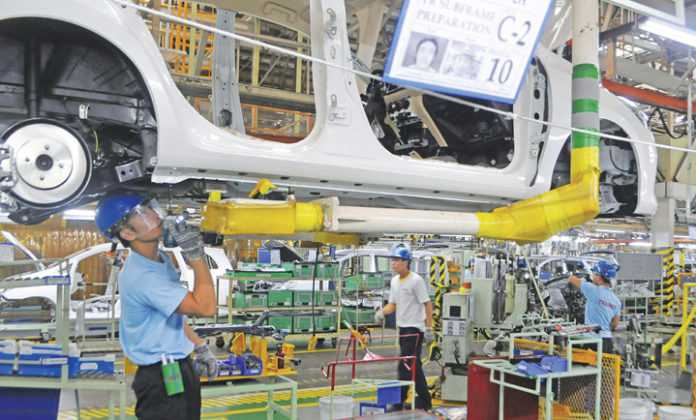‘Manufacturing feeling the heat of trade war’

Image collected
THE Philippine manufacturing sector is now feeling the adverse impact of the trade face-off between the world’s economic giants, the United States and China, an economist said on Thursday.
In a forum organized by the Ateneo Eagle Watch, former Socioeconomic Planning Secretary Cielito Habito said the impact of the trade war is evident in the performance of radio, TV and communication (RTC) equipment in the first semester.
RTC equipment, the top import and export commodity of the Philippines, recorded a 0.3-percent decline in the January-to-June period.
Habito attributed this to the ongoing trade war between the US and China. Markets were rattled as the two economic giants slapped onerous tariffs on commodities produced within their borders.
“It is the global value chain of main products affected, among others, by the US-China trade war,” he said during the forum held in Makati City on Thursday.
“So our part in that value chain, we assemble circuit boards, and immediate components that go through those electronics will slow down as well,” Habito added.
However, the former socioeconomic chief said Manila can take advantage of the development by wooing businesses from China and the US, which are now planning to relocate to other countries to avoid excessive tariffs.
“[The Philippines] can benefit from it [trade conflict] if the country can attract investments in the higher-level value chain,” he said.
Currently, Ateneo Center for Economic Research and Development (Acerd) Director Alvin Ang said, the Philippines has limited exposure to the US-China trade war.
“[The Philippines] did not really win from it, but the country did not really lose from it either,” Ang said.
He said those that greatly benefited from the US-China trade tiff are Vietnam, South Korea, Taiwan, and Bangladesh. Ang noted that businesses fleeing from the two economic giants relocated to these places.
Last June, Hinrich Foundation Research Fellow Stephen Olson said Chinese firms affected by the trade war will likely relocate to the Asean region but will prioritize Vietnam and Malaysia due to their business environment.
Olson said the Philippines may not benefit from the ongoing US-China trade war as some firms caught in the middle of the “tariff” war are opting to relocate to Vietnam and Malaysia, where infrastructure is deemed better and production costs are cheaper.
Source: https://businessmirror.com.ph
Previous Story
- 400 Bangladesh’s garment factories barred from accepting Western...
- China wants trade talks but if US wants...
- A front-runner in bike industry
- Bangladesh can reap benefit from US-China trade war
- Apple Mac Pro tariff relief denied by Trump
- Put national interest above everything
- Travellers from Dubai Airport can now check-in at...
- 83% of fashion companies plan to reduce China...